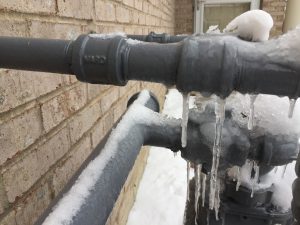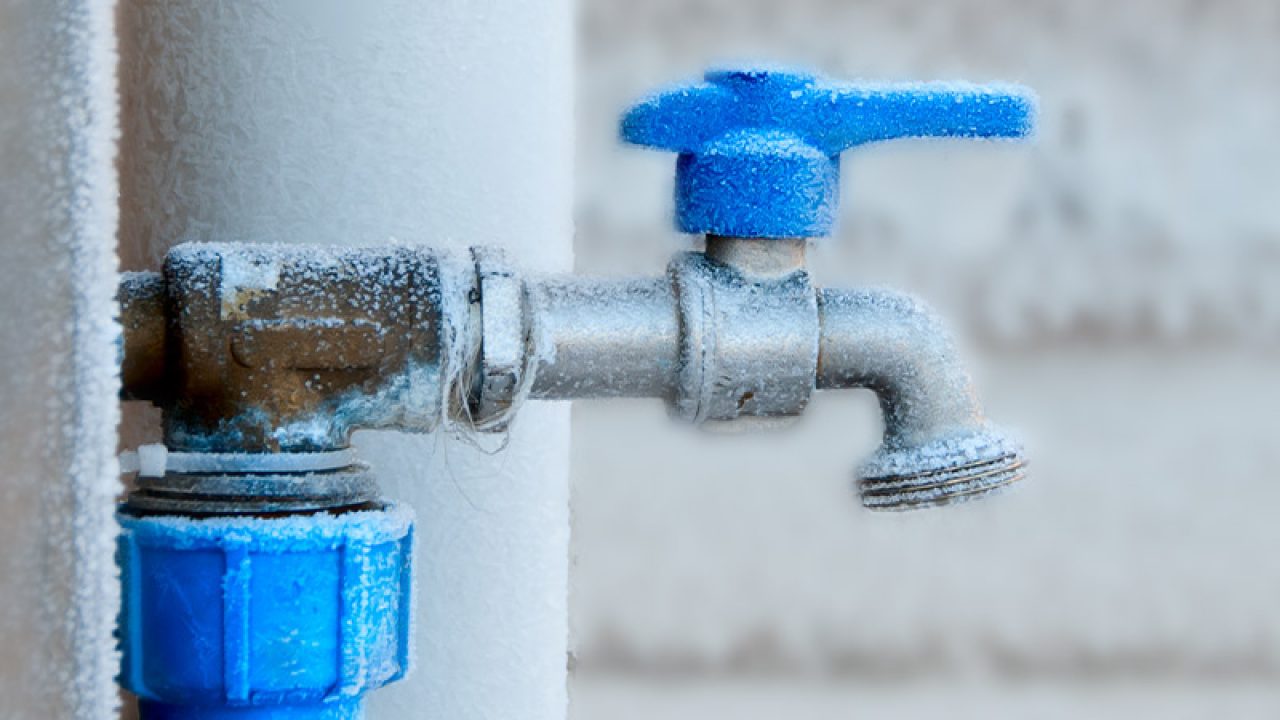Important Advice for Preventing Frozen Plumbing in Winter Conditions
Important Advice for Preventing Frozen Plumbing in Winter Conditions
Blog Article
The article down below relating to How To Avoid Freezing Pipes is totally informative. You should investigate it.

Cold weather can wreak havoc on your pipes, specifically by freezing pipes. Right here's exactly how to prevent it from happening and what to do if it does.
Introduction
As temperature levels drop, the danger of frozen pipelines increases, potentially resulting in expensive fixings and water damages. Recognizing just how to stop icy pipes is vital for house owners in cool environments.
Avoidance Tips
Insulating vulnerable pipes
Cover pipes in insulation sleeves or make use of warm tape to secure them from freezing temperatures. Concentrate on pipelines in unheated or exterior areas of the home.
Home heating methods
Maintain indoor rooms properly warmed, particularly areas with plumbing. Open cupboard doors to enable warm air to flow around pipelines under sinks.
How to identify frozen pipes
Search for lowered water circulation from faucets, uncommon smells or noises from pipes, and visible frost on subjected pipes.
Long-Term Solutions
Architectural adjustments
Think about rerouting pipelines away from exterior wall surfaces or unheated areas. Add added insulation to attic rooms, basements, and crawl spaces.
Upgrading insulation
Purchase top notch insulation for pipes, attics, and wall surfaces. Appropriate insulation aids keep regular temperature levels and reduces the danger of icy pipes.
Protecting Outdoor Plumbing
Yard tubes and exterior taps
Disconnect and drain yard pipes before winter season. Install frost-proof faucets or cover outside taps with insulated caps.
Understanding Frozen Pipelines
What triggers pipelines to freeze?
Pipes freeze when exposed to temperature levels below 32 ° F (0 ° C) for prolonged periods. As water inside the pipelines freezes, it increases, taxing the pipeline wall surfaces and potentially triggering them to rupture.
Risks and problems
Icy pipes can bring about water supply interruptions, property damage, and costly repairs. Ruptured pipes can flooding homes and cause comprehensive architectural damages.
Signs of Frozen Water Lines
Identifying icy pipes early can stop them from breaking.
What to Do If Your Pipelines Freeze
Immediate actions to take
If you presume icy pipes, maintain taps available to eliminate stress as the ice thaws. Utilize a hairdryer or towels soaked in hot water to thaw pipes slowly.
Verdict
Protecting against icy pipes calls for positive actions and fast feedbacks. By recognizing the causes, indications, and preventive measures, house owners can secure their plumbing throughout winter.
6 Proven Ways to Prevent Frozen Pipes and Protect Your Home
Disconnect and Drain Garden Hoses
Before winter arrives, start by disconnecting your garden hoses and draining any remaining water. Close the shut-off valves that supply outdoor hose bibs and leave the outdoor faucet open to allow any residual water to drain. For extra protection, consider using faucet covers throughout the colder months. It’s also important to drain water from any sprinkler supply lines following the manufacturer’s directions.
Insulate Exposed Pipes
Insulating your pipes is an effective way to prevent freezing. Pipe insulation is readily available at home improvement stores and is relatively inexpensive. Pay close attention to pipes in unheated areas such as the attic, basement, crawl spaces, or garage. Apply foam insulation generously to create a buffer against the cold. You can also wrap your pipes in heat tape or thermostat-controlled heat cables for added warmth.
Seal Air Leaks
Inspect your home for any cracks or openings that could let in cold air. Seal any holes around the piping in interior or exterior walls, as well as the sill plates where your home rests on its foundation. Additionally, make sure to keep your garage door closed unless you’re entering or exiting. Leaving it open creates a significant air leak that can lead to frozen pipes.
Allow Warm Air Circulation
During cold snaps, it’s essential to allow warm air to circulate evenly throughout your home. Leave interior doors ajar to promote better airflow. Open kitchen and bathroom cabinets to help distribute heat consistently around the rooms. If you have small children or pets, be sure to remove any household chemicals or potentially harmful cleaners from open cabinets for safety.
Let Faucets Drip
A small trickle of water can make a big difference in preventing ice formation inside your pipes. When temperatures drop significantly, start a drip of water from all faucets served by exposed pipes. This continuous flow helps prevent the water from freezing. Additionally, running a few faucets slightly can relieve pressure inside the pipes, reducing the chances of a rupture if the water inside does freeze.
https://choateshvac.com/6-proven-ways-to-prevent-frozen-pipes-and-protect-your-home/

I was made aware of that write-up on How To Avoid Freezing Pipes from an associate on another web page. Sharing is good. Helping people is fun. Many thanks for taking the time to read it.
Call Today Report this page